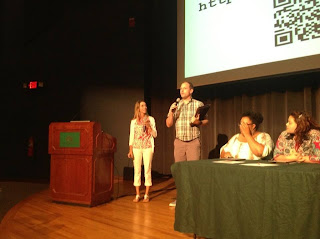 "When the cook tastes the soup, that's formative. When the guests taste the soup, that's summative."
"When the cook tastes the soup, that's formative. When the guests taste the soup, that's summative."
That quote is the best way to remember the definition and importance of formative assessment. My last post gave some ideas for pre-assessing students, which is a form of formative assessment. Here are some links to help you with formative assessment during a unit:
- "What Are Formative Assessments and Why Should We Use Them" (from Scholastic)
- Formative Assessment Activities (LearnNC)
- Formative Assessment Tools and Strategies for the 21st Century (from Idaho State Department of Education)
And don't forget about NC FALCON (North Carolina's Formative Assessment Learning Community's Online Network), accessible through your NC Education Moodle account.


